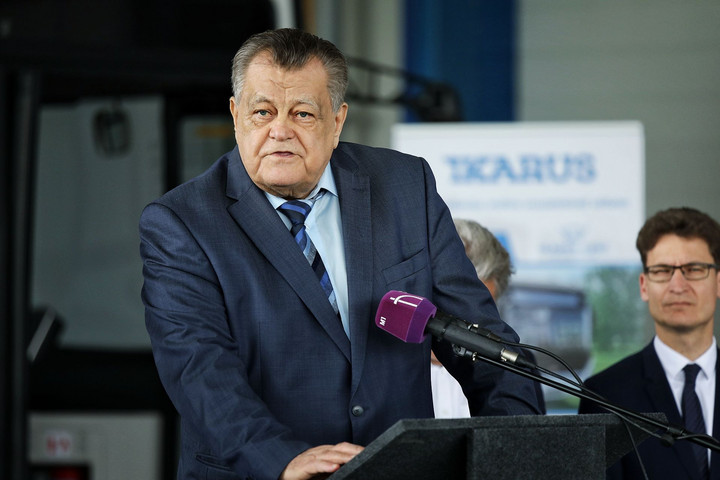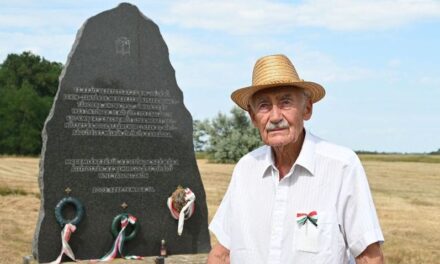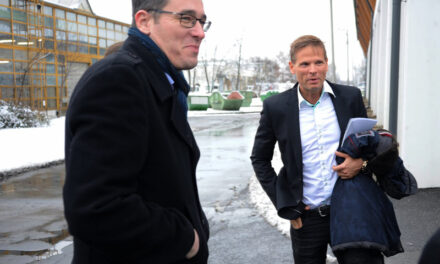Few people know that the company is part of II. During World War II, it was not famous for bus production, but for the legendary Messerschmitt Bf 109 fighter planes.
After the Second World War, bus production made Ikarus known worldwide, but Gábor Széles, the president of the company group, believes that success requires standing on several legs. What are these legs for the corporate group? What transformations are taking place in the world, and how does Ikarus want to take advantage of all this? - among other things, Gábor Széles talked about this in Trend.Fm's "Moggászán Crow with Frigyes" program.
Ikarus has already had a couple of big turns in its life: perhaps few people know that the company was part of the II. during World War II, it was not famous for bus production, but for the legendary Messerschmitt Bf 109 fighter planes, of which, according to a report addressed to Hitler, the best were made outside the borders of the German Empire in Fehérvár
- drew attention to Gábor Széles, the president of the Ikarus group of companies, in Trend.Fm's "Moggászán Varjú Frigyessel" program, which can be listened to here .
Gábor Széles was primarily asked about electromobility and the present and future of Ikarus, but it was no accident that he went back to the middle of the last century. As he said: "It is very important to be able to think long term."
- It is necessary to avoid situations where the company can only produce fighter aircraft, as was the case for the Germans during the Second World War, or only buses for the countries of the KGST. In other words, the Ikarus cannot get into a situation where it stands on just one leg, he declared.
Of course, Ikarus puts a lot of emphasis on the production of electric buses, but it has also "grown" two other legs, and that's how it stands.
- Our other leg is that we manufacture truck bodies for the Austrian and German markets. ... we have continuous orders, rather we can't handle it with capacity. Our third leg... is the production of railway chassis - revealed Gábor Széles.
With regard to the latter and the importance of strategic thinking, the president of the company group outlined the transformations taking place in the world. He recalled China's ambitious plans: the development of the railway connection between Asia and Europe, as well as the north-south railway connection of the EU, which also includes the Belgrade-Budapest railway line. It is therefore clear that trains will continue to play an important role in the transport of goods in the 21st century, and in fact, it is expected that they will play a more important role than at present.
Ikarus therefore entered the sector at a good time and plans for the long term. Of course, the question arises as to whether one can even plan for the long term in such a changeable and crisis-laden period as the one in which we live.
According to Gábor Széles, yes, and the president of the Ikarus group believes, along with many others: although the press has recently written a lot about the fact that battery production and e-mobility have fallen into a pit, in fact almost nothing justifies the fears.
The EU is determined in favor of the green transition, the relevant directives have been adopted.
- So I think the future of batteries will be bigger and bigger - he said, and during the program it was also revealed that although the deadline for the complete transition is 2035, there are already two countries in Europe - Norway and Slovenia - where 100 percent of the buses purchased are electric.
It was also mentioned that abroad, for example in Germany, Poland or Romania, the interest in the Hungarian-designed and manufactured electric buses of Ikarus is constantly growing, but there are still few of them in operation here.
- At the time, Minister Palkovics said on behalf of the government that they would buy thousands of electric buses, of which 50 were bought, and we were able to win twelve of them. We are also happy with these twelve, but we are not talking about thousands of buses here. Obviously, today's economic situation is not such that the government can undertake such large-scale investments, but at the same time, it is evident that there is a very serious strategic thinking, he noted, and with this he partly answered those who are currently burying battery production.
He added: in the last two decades there has been enormous progress, sizes and prices have decreased, capacity has increased, and although lithium has had its challengers, batteries are needed, and the demand for them will continue to grow. "Economically, the picture is confusing right now because an industrial revolution is taking place, and this is actually causing temporary difficulties," Gábor Széles summarized his experiences.
In the end, the president of the company group answered the question, "Can Ikarus still be a prophet in his own country?", "I think he can be in the world as well!"
Featured image: MH archive/Péter Papajcsik













